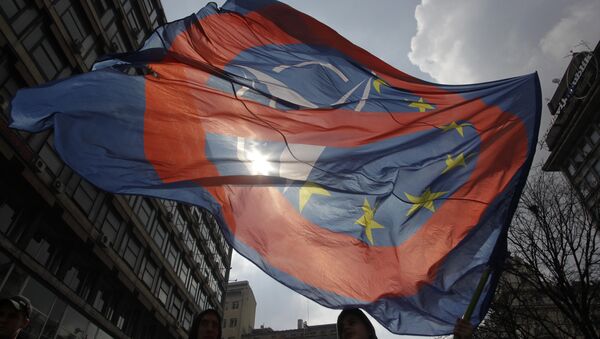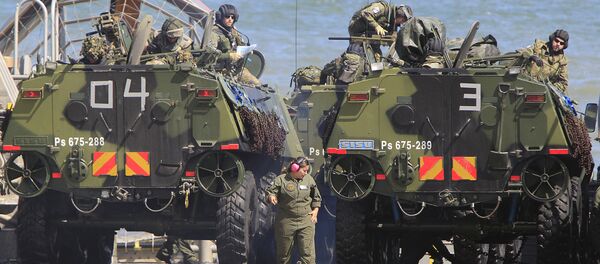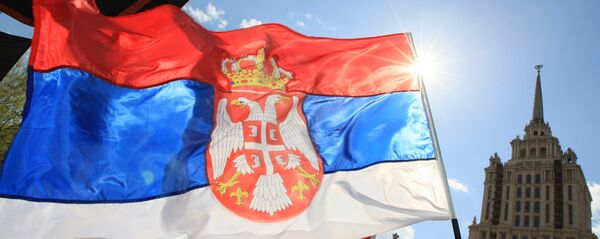MOSCOW (Sputnik) — Djordjevic stressed that by strengthening cooperation with the alliance, Belgrade was not jeopardizing its principle of neutrality.
"All the agreements concluded with NATO have a goal of creating best conditions for the realization of cooperation, on which we agreed in 2007. Interpretations like those that by ratifying Status of forces agreement (SOFA) and agreements on logistic support, Serbia made a step into NATO are tendentious and wrong," Djordjevic said.
NATO Members Stress Significance of Closer Ties With Russia
"The most high-profile representatives of NATO states have been using any opportunity to strengthen the solidarity within the alliance lately, but at the same time they stress the significance of closer ties with Russia," Djordjevic said.
The minister added that the Warsaw summit rhetoric demonstrated that despite deterioration in the NATO-Russia relations, the alliance was seeking normalization and restart.
"My personal impression is that the summit was not held 'under the sign of confrontation," he stressed.
The Summit in Poland's capital was held last week and focused on Russia. On Wednesday, Russian Permanent Representative to NATO Alexander Grushko said measures adopted by alliance's member countries at the summit were of confrontational nature.
Serbia to Review Possibility of Joint Military Drills With CSTO
Serbia will examine the possibility of holding joint military exercise with the Collective Security Treaty Organization (CSTO) in near future, Serbian Defense Minister Zoran Djordjevic told Sputnik.
"After dialogue on parliamentarian level, as well as talks with CSTO Secretary General [Nikolai] Bordyuzha, we will review the possibility of developing military cooperation, particularly holding joint drills, and with assistance of the Serbian Interior Ministry in other fields, including fight against terrorism and drug trafficking," the minister said.
Djordjevic and Bordyuzha met in late April to discuss prospects of cooperation in military and security areas.
The CSTO is a military alliance of former Soviet states, which comprises Armenia, Belarus, Kazakhstan, Kyrgyzstan, Russia, and Tajikistan.
Since 2014, NATO has been building up its military presence in Europe, particularly in eastern European countries bordering Russia, using Moscow's alleged interference in Ukraine as a pretext for the move.



